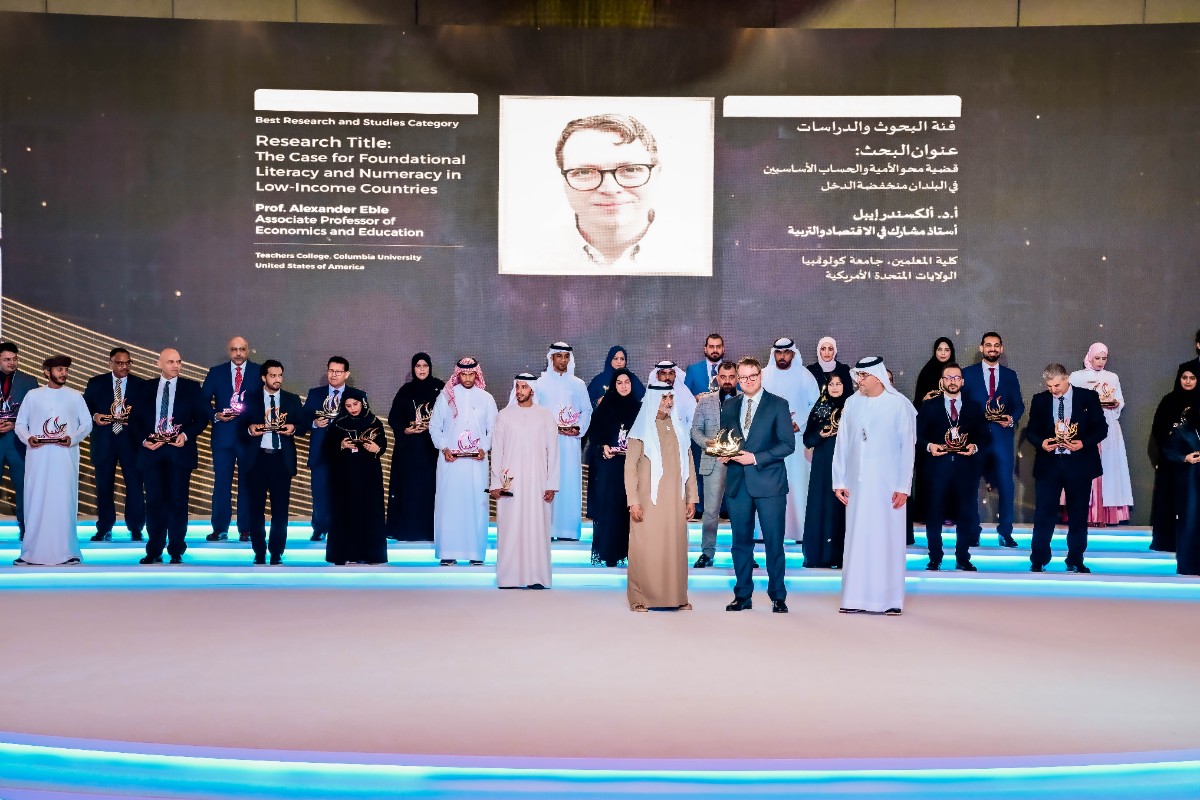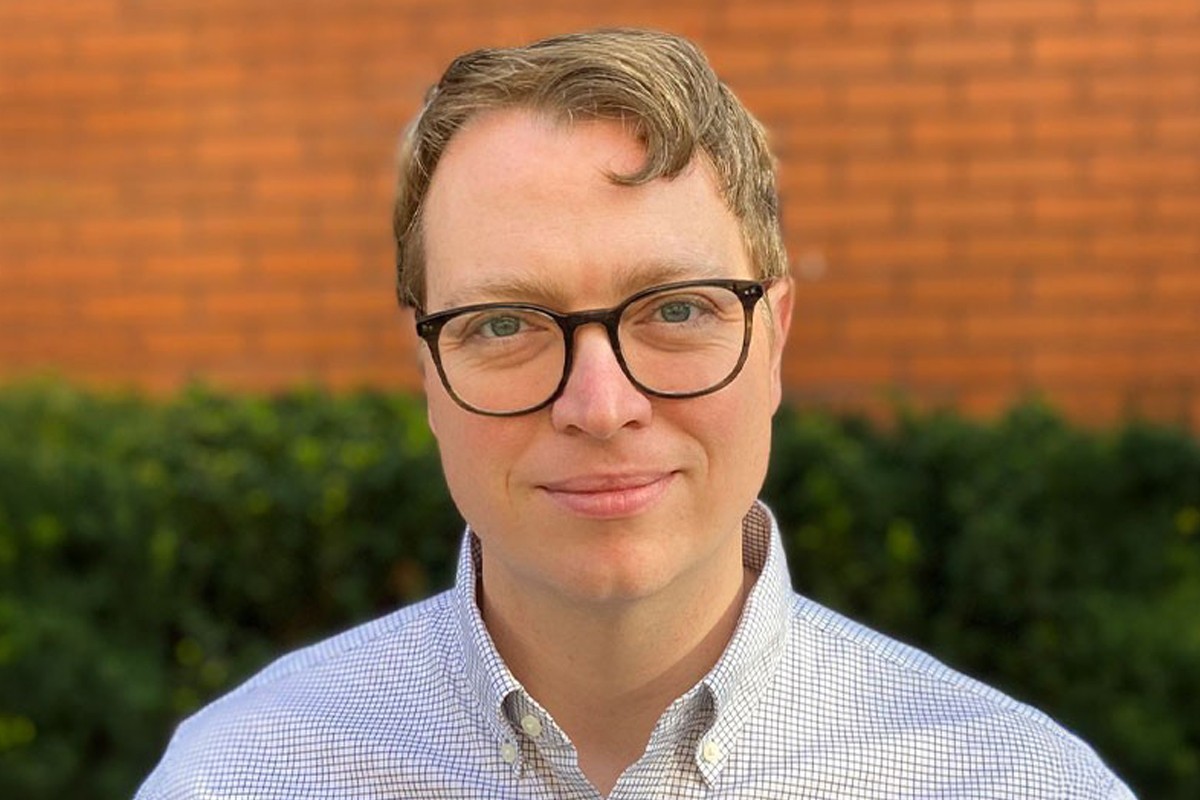The Khalifa Education Foundation has recognized Alex Eble, Associate Professor of Economics and Education, with the Khalifa International Award for Early Learning for his body of work on raising foundational literacy and numeracy in low-income countries.
Under the patronage of His Highness Sheikh Mansour bin Zayed Al Nahyan, Deputy and Prime Minister of the United Arab Emirates, Minister of the Presidential Court, and Chairman of the Board of Trustees of the Khalifa Award for Education — an essential part of Zayed’s humanitarian legacy — the prestigious international award celebrated its 18th anniversary. Presented across various categories related to education, the award recognizes outstanding contributions to the advancement of education systems worldwide. Eble was honored alongside 48 distinguished winners from around the globe, each having made a significant impact in the field of education.

(Pictured: Eble (center) was honored with the Khalifa International Award for Early Learning for his comprehensive work on foundational literacy and numeracy in low-income countries.)
“This award means the world to me — it highlights and elevates the main insights of this research program, and the prize itself will help support the ongoing work we have in both countries,” shares Eble. “The research that went into this took many years to come to fruition, and benefited from the input of countless brilliant and generous people.”
Eble's research focuses on two primary areas: one, understanding children's self-beliefs and their impact on human capital development, and two, evaluating potentially high-leverage policy options to enhance learning in developing nations. The work recognized by the Khalifa Award—and shaped by fieldwork experience in China, the Gambia, Guinea-Bissau, and India—explores how best to equip children in low-income settings with the foundational literacy and numeracy skills necessary to participate in the modern economy.
His studies in the Gambia and Guinea-Bissau (Eble et al. 2021; Fazzio et al. 2021) revealed the largest documented learning gains through interventions measured to date. This work documented that a special model of teaching the early grades of primary school, paired with monitoring and community engagement, can raise children’s chances of reaching literacy and numeracy in these contexts from virtually zero to between 25 percent and 60 percent, respectively.
“I’m deeply grateful to the professionals involved in the work, especially to our teams in the Gambia and Guinea-Bissau, who did the lion’s share of the heavy lifting to make these gains possible,” Eble reflects. “I’ve also received a great amount of mentorship and guidance from my colleagues here at Teachers College, Columbia University and beyond, which has been crucial in the design of the research, its execution, and, ultimately, in getting it out into the world.”
